Side Effects Of Low-Carb Diets
 When people opt for low-carb diets, they hope the side effects will be weight loss. In many cases, they’re right. Low-carb diets also have some negative side effects that range from uncomfortable to painful. Low-carb diets are designed to reduce the number of calories from carbs and increase calories from protein and fat. When you limit carbs, you limit sugary and refined products are removed from the diet. That alone can make a difference in overall good health and weight loss, and it’s a positive difference. What are some of the negative side effects people experience?
When people opt for low-carb diets, they hope the side effects will be weight loss. In many cases, they’re right. Low-carb diets also have some negative side effects that range from uncomfortable to painful. Low-carb diets are designed to reduce the number of calories from carbs and increase calories from protein and fat. When you limit carbs, you limit sugary and refined products are removed from the diet. That alone can make a difference in overall good health and weight loss, and it’s a positive difference. What are some of the negative side effects people experience?
Sometimes it’s called the keto flu or induction flu.
When you start a low-carb diet, particularly one that’s extremely low in carbs, like a keto diet, you get flu-like symptoms. It starts in the first few days and can last a week or more. It has flu symptoms, like feeling exhausted, experiencing nausea, and sometimes feeling mentally disoriented and confused. A few people have symptoms of hypoglycemia—low blood sugar. It occurs after the body uses all the glucose and glucose stores, but still requires energy. It then breaks down fat to produce ketones for fuel. When there are no carbs in the system, insulin is reduced, which causes a release of water, sodium, and potassium. It can also cause the brain to have less fuel for a while, hence the brain fog.
When you’re on a low-carb diet, you’re cutting out many sources of fiber.
What happens when you don’t have enough fiber in your diet? You get constipated. Not only does a low-carb diet create dietary changes that can usher in difficulties in the bathroom, but it also reduces the fiber in your diet. Low-carb diets reduce the amount of grain and other high-fiber foods, like beans. That lack of fiber causes constipation. When choosing carbs, choose food that provides fiber.
Ketosis causes halitosis.
Bad breath can be a big side effect of a strict low-carb diet, primarily the keto diet. When your body switches from using glucose to using ketones for food, acetone is produced. It is removed through urination or exhalation. It causes the breath to smell like nail polish remover, sickeningly sweet, or worse due to other by-products also exiting the body. No amount of brushing, flossing, or gargling can remove the smell.
- If you’re on an extremely low-carb diet, you can avoid flu-like symptoms if you drink bouillon or broth. Dehydration, low sodium, magnesium, or potassium can cause the problem. Increasing fluids can also help with constipation.
- Muscle cramps are side effects of low-carb diets. Drinking more water and sometimes supplementing it with magnesium can help. If you have keto breath or strong-smelling perspiration, drinking more water helps that, too.
- Heart palpitations or an elevated heart rate can occur when you initially start a low-carb diet. It’s from dehydration and electrolyte imbalance. Drinking broth or more water can help.
- Athletes and people who exercise regularly may notice a reduction in their performance. Drinking a cup of broth or lightly salted water 30-60 minutes before activity helps. It will correct itself in a few weeks.
For more information, contact us today at Habitat Health & Fitness


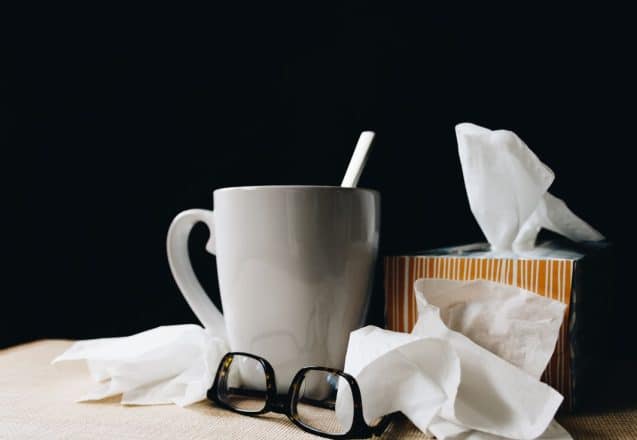
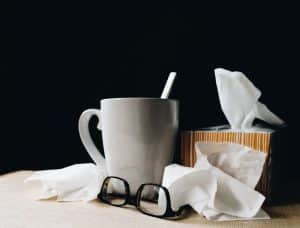 Most people in Lakeland, FL, can identify some food that doesn’t agree with them. A few live in fear because their reaction could be life-threatening. That’s one explanation of the difference between a food allergy and a food sensitivity, or intolerance. It’s how the body responds to the food and what triggers the reaction. The immune system triggers a food allergy. Food sensitivity, or intolerance, is triggered by the digestive system.
Most people in Lakeland, FL, can identify some food that doesn’t agree with them. A few live in fear because their reaction could be life-threatening. That’s one explanation of the difference between a food allergy and a food sensitivity, or intolerance. It’s how the body responds to the food and what triggers the reaction. The immune system triggers a food allergy. Food sensitivity, or intolerance, is triggered by the digestive system.
 Do you want to look your best? People often focus on losing weight, but they also need to focus on the fat to muscle tissue ratio. The two aren’t equal. A biological female weighing 130 pounds but has over 25% body fat will look far heavier than a counterpart weighing the same whose body fat is 14%. Even though the two are the same weight, the one with more muscle will look thinner.
Do you want to look your best? People often focus on losing weight, but they also need to focus on the fat to muscle tissue ratio. The two aren’t equal. A biological female weighing 130 pounds but has over 25% body fat will look far heavier than a counterpart weighing the same whose body fat is 14%. Even though the two are the same weight, the one with more muscle will look thinner.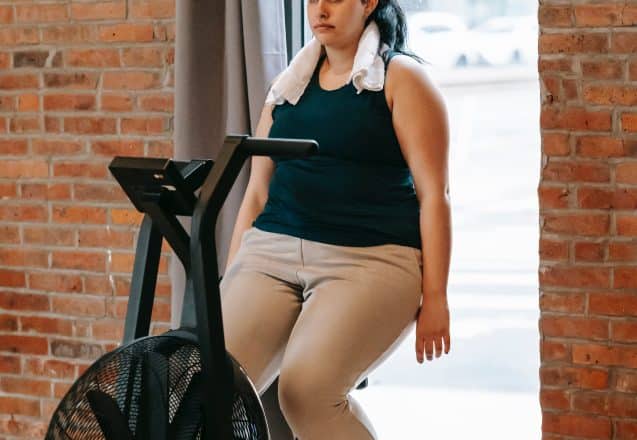
 People who work out at Habitat Health and Fitness know that continuously eating more calories than you require causes weight gain. It’s the first thing most overweight people learn about weight control. What most people don’t search for are signs you actually need to eat more calories. It may sound like a dream come true, but it isn’t. It’s just as hard to gain weight as it is to lose it. Too few calories can interfere with the functions of the body and lead to critical health issues.
People who work out at Habitat Health and Fitness know that continuously eating more calories than you require causes weight gain. It’s the first thing most overweight people learn about weight control. What most people don’t search for are signs you actually need to eat more calories. It may sound like a dream come true, but it isn’t. It’s just as hard to gain weight as it is to lose it. Too few calories can interfere with the functions of the body and lead to critical health issues.
 While working out is an important part of weight loss and fitness, nutrition also plays an important role. We have local farmers in Lakeland, FL, that grow some of the healthiest options, such as leafy greens. You get many health benefits from adding leafy greens to your diet. They’re high in fiber and water content, so they’re filling, yet have only a few calories, improving weight loss potential. Depending on the green, there are a wide variety of nutrients, too. The potassium in leafy greens like spinach can help reduce bloating, relieving you of excess water weight.
While working out is an important part of weight loss and fitness, nutrition also plays an important role. We have local farmers in Lakeland, FL, that grow some of the healthiest options, such as leafy greens. You get many health benefits from adding leafy greens to your diet. They’re high in fiber and water content, so they’re filling, yet have only a few calories, improving weight loss potential. Depending on the green, there are a wide variety of nutrients, too. The potassium in leafy greens like spinach can help reduce bloating, relieving you of excess water weight.![End Carb Cravings [Part 2]](https://habitatfit.com/wp-content/uploads/sites/195/2018/10/berries-berry-blur-275706-637x440.jpg)

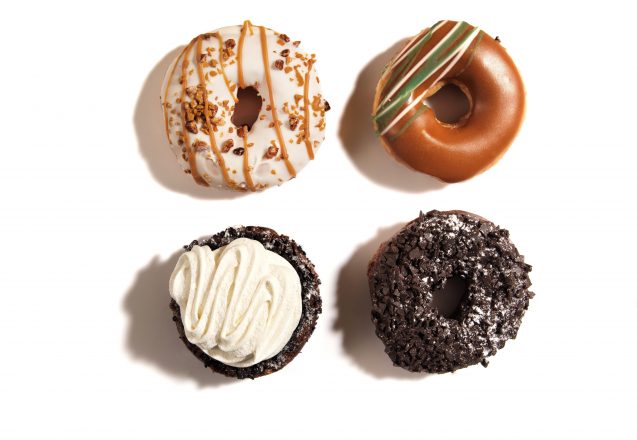
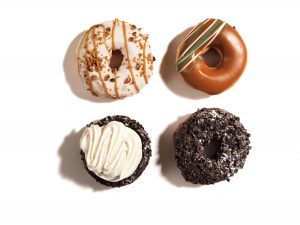

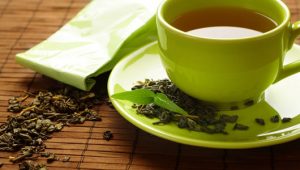 Wouldn’t it be nice if there were a simple pill that REALLY burned fat! Imagine sitting around not doing much and melting fat like a Hershey Kiss left in the attic. The truth is, fat loss is a byproduct of getting healthy. It’s fun to fantasize about taking a pill though.
Wouldn’t it be nice if there were a simple pill that REALLY burned fat! Imagine sitting around not doing much and melting fat like a Hershey Kiss left in the attic. The truth is, fat loss is a byproduct of getting healthy. It’s fun to fantasize about taking a pill though.